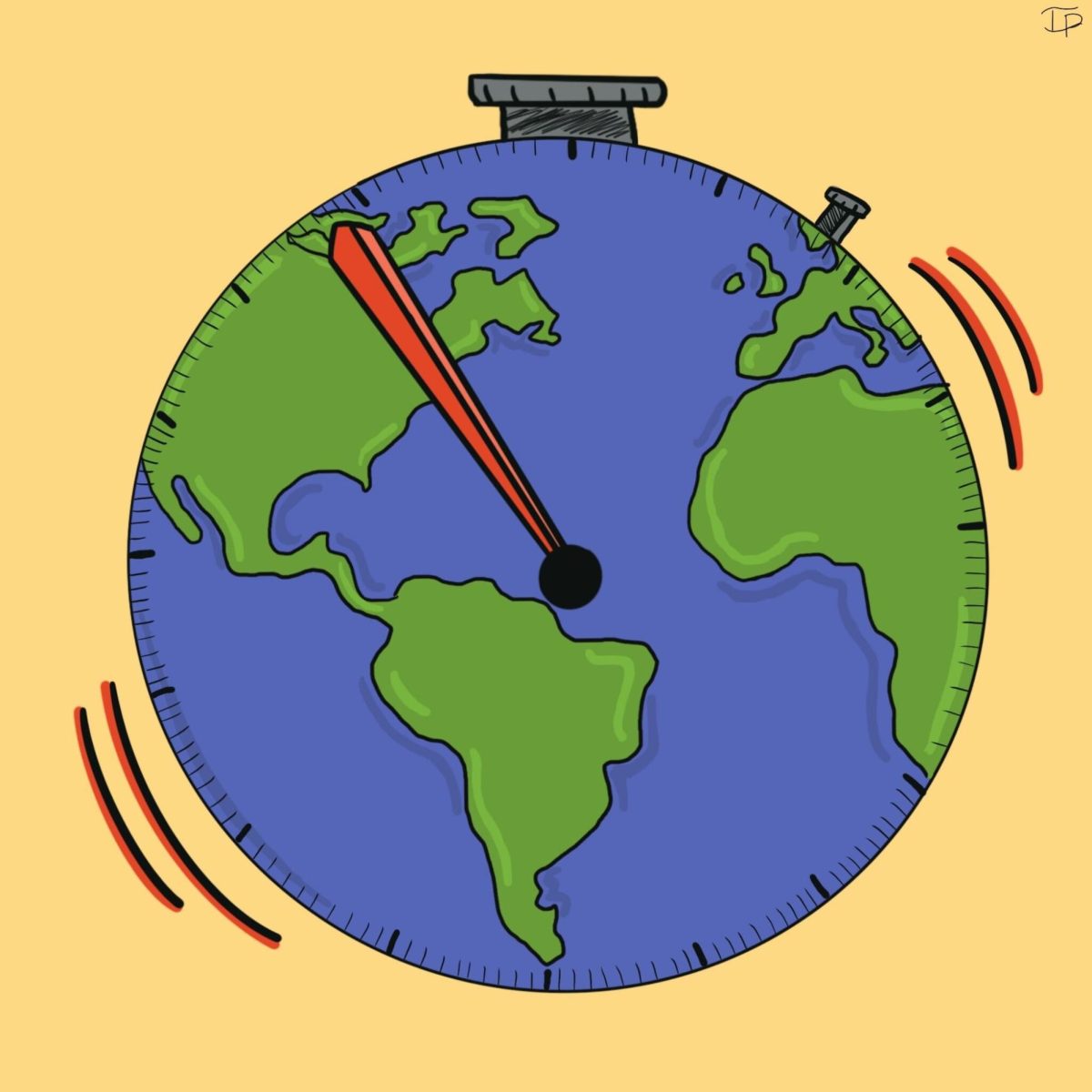Sudanese reflect on violence
March 23, 2010
Isaac Leju-Loding left his mother, his brother and five sisters in Sudan never to return… Isaac Leju-Loding left his mother, his brother and five sisters in Sudan never to return home.
The year was 1989. He was 18 years old and had the memory of a friend’s arrest fresh in his mind.
Sudan, his home country, had been in a civil war for six years and would not end it for many more.
“I was sort of tossed out of the country, to flee,” Leju-Loding, now 38, said of his secret escape. “It was physical,” he said, noting that he had to run, hide and dodge from the authorities.
Leju-Loding works full time as the president of Sudanese Community in Pittsburgh, which is part of the Union of African Communities in Pittsburgh and Allegheny County, a group dedicated to improving the quality of life for Africans in Pittsburgh. With more than 600 members, Pittsburgh’s Sudanese population is the third largest in the nation behind Lincoln, Neb., and Dallas, Texas.
Leju-Loding worked with the Pittsburgh Darfur Emergency Coalition and the Obama administration to organize a summit on Sudan at Carnegie Mellon this weekend.
The country has been ripe with violence for decades. The Janjaweed, an Arab militia supported by the Khartoum government in Sudan, has been murdering millions of Africans in Darfur. In February 2003, two Darfurian groups, the Sudan Liberation Movement/Army and the Justice and Equality Movement rebelled against their government in response. The government fought back harder, and thousands of citizens die each month.
The summit, sponsored by the the Emergency Coalition, featured presentations by members of President Obama’s Special Envoy to Sudan. Local government representatives U.S. Rep. Mike Doyle, D-Forest Hills; state Rep. Dan Frankel, D-Squirrel Hill; Allegheny County Councilman Bill Robinson and city Councilman Bill Peduto, who represents Oakland, attended the summit.
At the closing conference on Saturday evening, about 100 adults and roughly a dozen students gathered to hear what several speakers had to say. Many of the audience members’ stories were not far from Isaac’s.
Ezekiel Lol Gatkuoth, who represented the Sudanese government in the United States and has returned to Sudan several times, shared his stories from his home country.
“If you had met me in 1985, you would see me in the bushes of Southern Sudan fighting as a young boy,” he said. “I did not know my ABCs … I did not even know how to write my own language.”
Jerry Fowler, president of the Save Darfur Coalition, presented four points on the prospects for peace in Darfur: security, a political foundation for peace, an economical foundation for peace and the international role in helping Darfur and Sudan as a whole.
Gen. Scott Gration, a policy adviser for President Barack Obama and retired major general, gave a calm and hopeful speech about the United States’ efforts to “seek a definitive end” to the violence in Darfur and Sudan.
“I think there is a good chance we have started democratization in Sudan,” Gration said. He said he hopes the people of Sudan will begin to see changes in their daily lives as important milestones are reached over the next few years.
Leju-Loding said the event “exceeded my expectations,” noting that he looks forward to seeing progress in Sudan.
He expanded upon his story in a separate interview.
He said that when he left Sudan, he first went to Miami, where he was able to enter the country. He knew few people, but was able to speak English — a language he had studied since elementary school.
One of Leju-Loding’s friends lived in Dallas. He had come to the country years earlier as a student and learned via word of mouth that Leju-Loding made it safely to the U.S.. The friend, whose name Leju-Loding declined to give because he didn’t want to do an interview, arranged for Leju-Loding to fly to his home.
But Leju-Loding didn’t spend long in Dallas.
“I hated the weather in Dallas and Florida,” he said. “It was the same as the weather in south Sudan. I wanted to see snow.”
So he moved to Ohio and became a biology student at Ohio State University. He heard of Pittsburgh’s large Sudanese population, and after only a year, Leju-Loding found himself working as a telemarketer in Monroeville, where he quickly bonded with the people he met.
“I wanted to help them. I took them to the hospital, I helped them get an education and speak English,” he said.
After he raised the money he needed, Leju-Loding became a student at Penn State and the vice president of the Sudanese Community in Pittsburgh. When he decided to campaign for the position of president in the early 1990s, he won by a landslide.
Leju-Loding, who has been married for seven years and has 5-year-old and 7-year-old sons, spends much of his time speaking to government officials about the violence in Sudan.
He has spoken before City Council. He hopes the local leaders will put pressure on state and federal leaders, eventually encouraging Obama to put pressure on Sudanese citizens to comply with their peace agreement. The Sudanese Government and the Sudan People’s Liberation Movement signed an agreement that holds both sides accountable to strive toward long-term peace within their country.


